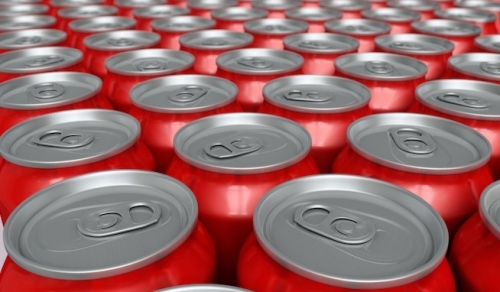
In a not-so-sweet move, the World Health Organization (WHO) recently recommended that adults should cut their daily intake of added sugars from 10 percent of total calories to 5 percent. For someone who consumes 2,000 calories per day (the generally recommended amount for an adult male), the suggested intake of added sugar is approximately 25 grams—the equivalent of six teaspoons of sugar. To put that in perspective, a single can of non-diet soda contains about 40 grams of sugar.
Added sugars include things like high fructose corn syrup, molasses and maltodextrin—any sugar or syrup that manufacturers add to foods or beverages during processing. The WHO also mentions that people should restrict their intake of sugars “naturally present in honey, syrups, fruit juices and fruit concentrates.” Those foods are also high in monosaccharides and disaccharides, simple carbs that the organization wants people to cut from their diets.
The WHO’s decision comes after a review of approximately 9,000 studies. The organization believes reducing the consumption of added sugar will combat tooth decay and obesity. Dental care costs account for up to 10 percent of health care spending in industrialized countries, and research suggests that drinking even one can of soda per day can increase a person’s risk of dying from cardiovascular disease by 29 percent.
Nutritionists stress the new recommendation applies to sugars added to processed foods. They do not call for a reduction in the consumption of naturally occurring sugars in unprocessed foods.
“Let’s be clear on what is being proposed,” says Leslie Bonci, RD, and nutrition consultant to the Pittsburgh Pirates, Pittsburgh Steelers and other professional teams. “This [fusion_builder_container hundred_percent=”yes” overflow=”visible”][fusion_builder_row][fusion_builder_column type=”1_1″ background_position=”left top” background_color=”” border_size=”” border_color=”” border_style=”solid” spacing=”yes” background_image=”” background_repeat=”no-repeat” padding=”” margin_top=”0px” margin_bottom=”0px” class=”” id=”” animation_type=”” animation_speed=”0.3″ animation_direction=”left” hide_on_mobile=”no” center_content=”no” min_height=”none”][announcement] does not include [natural] sugar in fruit, milk and grains.”
Natural sugars include “fructose in fruit, lactose in milk, maltose in grains and oligosaccharides in vegetables and beans,” according to Bonci.
As an athlete, you should still eat carbs, and plenty of them.
“Active individuals need anywhere from 45 to 65 percent of their calories from carbs, depending upon duration and intensity of exercise,” says Bonci. “A 150-pound athlete would need between 225 and 750 grams of carbs. Some of that might be from fruits, grains and milk.” Their high level of activity means athletes can also ingest simple carbs during endurance races or high-intensity training sessions. According to Bonci, “During prolonged exercise, there is also a need for 30 grams of carbs per hour after the first hour. It will likely be in the form of chews, honey or sports drinks.”
[/fusion_builder_column][/fusion_builder_row][/fusion_builder_container]

